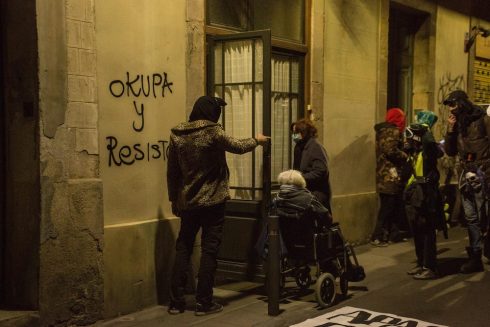FAST-TRACK trials for squatter cases have been delayed by a vote in Senate on the Judicial Efficiency Bill.
Congress approved the measure last month but the Partido Popular(PP)-controlled Senate voted to send the bill back to the lower house, which will almost certainly override the veto.
It is expected to be backed at a Plenary meeting of Congress later this month and will likely to hit the statute book within the the first three months of 2025.
READ MORE:
- Spain’s new ‘anti-squatter law’ will NOT protect the most vulnerable homeowners, warns property expert
- Spain’s hated squatter protections to be abolished after major bill amendment is approved ‘by mistake’
- This is the ‘pizza technique’ being used by squatters in Spain to target YOUR empty homes

The legislation approved by Congress proposes handling offences of home invasion and unlawful occupation of property through a fast-track judicial procedure, enabling cases to be resolved within an estimated 15 days.
By amending the Criminal Procedure Act, cases of illegal squatting would be added to the list of minor offences eligible for expedited processing, which currently includes crimes such as theft and burglary.
While this move has been hailed by some as progress in tackling squatting, others have expressed reservations, noting that the measure does not address so-called ‘tenant squatting’ known in Spanish as inquiokupacion.
The PP’s reason for the Senate veto centres on the government’s failure to employ ‘proper legislative drafting’ and a lack of ‘planning and organisation’.
The PP claims that the simultaneous processing of two legislative projects affecting the same laws creates ‘confusion, chaos, and a serious attack on legal certainty’.
It emphasises that ‘citizens are entitled to protections against a disorganised and abusive use of executive powers’, adding that Parliament cannot stand idly by in the face of tactics and strategies that undermine those it represents.












The new legislation does not address the pains of neighbours who live close to tenant squatters. Neighbours are affected by noise, rabbish, damage of the building, steeling of water and electricity and even violence against neighbours and their property. Neighbours cannot rent their flat to tourists if they want to avoid that tourists suffer the same pains and demand their holiday rental fee back. Neighbours cannot sell their home at a good price as long as the neighbouring flat is occupied.
As neighbours are not the owners of the occupied flat, they cannot ask the court to evict the squatter. Police will not come if neighbours are attacked by squatters or terrorised by noise because police knows already that they have no chance against squatters who claim to be vulnerable, i.e. because there lives a mother with a child.